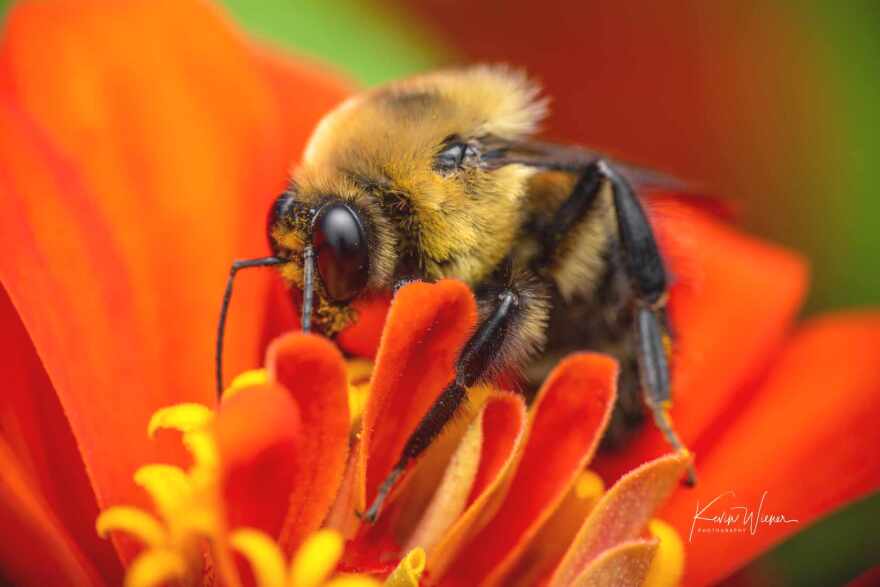
It’s a party on the lawn of Wesselman Park with pounding music, food trucks, a lot of lawn chairs and of course, eclipse glasses.
Visitors are waiting the final 15 minutes before the sky goes dark in this rare celestial event.
But deep inside Wesselman Woods the birds and insects are going about their day.
The American robin, tufted titmouse, American goldfinch and White-breasted nuthatch sing along with the distant rumble of a vehicle on Stockwell Road.
But as the light fades to the darkness of totality — so does the sound in the woods. The birdcalls diminish in volume and frequency as the sky goes dark.
Kelly Zimmerman is an ecologist and PHD student at Montclair State University in New Jersey. She did a master's degree in ecology and evolution, with research on insect behavior. She also identified the birds heard at Wesselman Woods by listening to the recorded audio during the eclipse.
Zimmerman said with an eclipse, you would expect most of the animals to start to behave as if night is falling.
“Birds come into roost; insects very similar,” she said. “So bees should stop foraging and start heading back to the hive if they're hive bees, like Bumbles or honeybees; solitary bees will go back to their homes as well. You'll start to hear crickets.”
Or even see lightning bugs if you’re lucky.

And regarding dogs and cats, they are likely affected too, said board certified veterinary behaviorist Dr. Amanda Rignarinck.
“I know, this is a very exciting time for everybody. And, yes, I definitely think that at least dogs can be affected by the Eclipse, because it is going to be a sudden onset of darkness in the middle of the day,” she said. “Animals for sure are creatures of habit. They are affected by the circadian rhythm just like humans, and so when there's a change like that, it can be confusing or uncertain of what's happening and in the environment around them.”
During her 85-90-percent totality eclipse , Zimmerman observed starlings roosting early, as if it were evening.
“And the birdsong also quieted,” she said. “We lost some birdsong as it got darker, which is cool. Very cool.”
At Wesselman Park, Davin, a teen from Owensboro, noticed that the birds “seemed confused.”
“They were kind of confused on if the weather was nighttime or daytime … because he got so dark so quick.”
Zimmerman agrees with the term “confusion.”
“It is a ‘confusion’ because they're picking up on this sort of false cue,” she said. “They're behaving in a way if it was evening, and it's not. So certainly confusion is a good term for that.”
Birds, bugs, dogs and cats aside, humans are also affected by the total solar eclipse.
Robert Hilton From Harvest Alabama was moved by the dazzling display of the total solar eclipse.
“It's breathtaking. Like I have zero words. You definitely, you're definitely missing out if you haven't seen it.”
Deneisha Beasley and daughter Diana, 9, drove six hours from Stone Mountain Georgia, and said they would do it again.
“It was beautiful,” Daneisha said.
“So amazing,” Diana said.
As the light returns, visitors began packing up to get a jump on possibly a long drive home, while life goes back to normal in Wesselman Woods.

Support independent journalism today. You rely on WNIN to stay informed, and we depend on you to make our work possible. Give to grow our local reporting today. Donate

